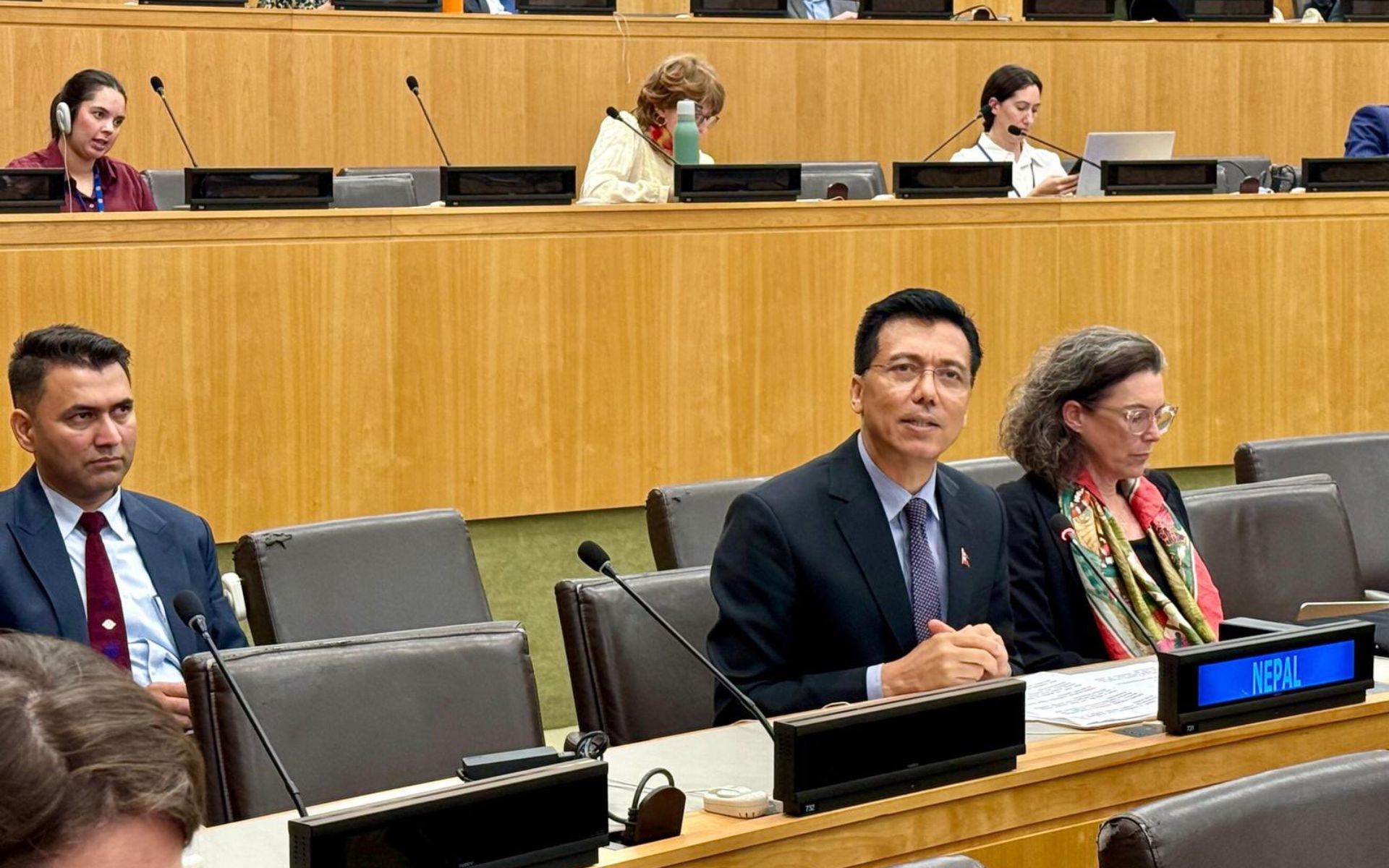
Kathmandu: Nepal has urged the international community to scale up adaptation finance and unlock innovative financial instruments to address the mounting impacts of climate change on vulnerable countries.
Speaking at the High-Level Solutions Dialogue on September 22, “Accelerating Adaptation, Implementation, and Investment” at UN Headquarters in New York, Ambassador Lok Bahadur Thapa, Nepal’s Permanent Representative to the UN, emphasised that climate change is a lived reality for Nepal, despite its negligible greenhouse gas emissions.
“As a landlocked, least developed, mountainous country, Nepal faces melting glaciers, erratic monsoons, droughts, and disasters that threaten lives, livelihoods, and ecosystems,” he told delegates. “For us, adaptation is not a choice, it is a necessity.”
Ambassador Thapa highlighted Nepal’s ambitious climate commitments under its NDC 3.0, including tripling renewable energy, doubling clean energy, and ensuring a just transition aligned with the Global Stocktake. He said Nepal’s National Adaptation Plans outline clear financial priorities, backed by robust data and transparent tracking systems, while empowering women, youth, and indigenous communities to lead.
However, he warned that the widening gap between adaptation needs and resources is undermining resilience and global climate ambition. “The new collective quantified goal must deliver at least $300 billion annually, anchored in the Baku to Belém Roadmap for $1.3 trillion,” he said. He further called for tripling grant-based adaptation finance by 2030, with half of all climate finance directed toward resilience-building in the most vulnerable nations.
Ambassador Thapa also emphasized the need for debt relief, concessional finance, debt-for-climate swaps, and innovative tools such as blended finance, blue bonds, resilience bonds, insurance, and guarantees to reduce investment risks and mobilize private finance. Public-private partnerships, he said, can help deliver essential services and ease fiscal pressures.
“The Himalayas are warming at twice the global average, threatening regional water security,” he cautioned, urging urgent investment in glacier monitoring, early warning systems, and scaled-up regional adaptation.
Concluding his remarks, the Nepali envoy framed the road to Belém as a historic opportunity: “Let us triple adaptation finance, unlock innovative instruments, align our action with 1.5°C, and restore trust through strengthened multilateralism. Let us empower communities, protect ecosystems, and build resilience from the ground up.”